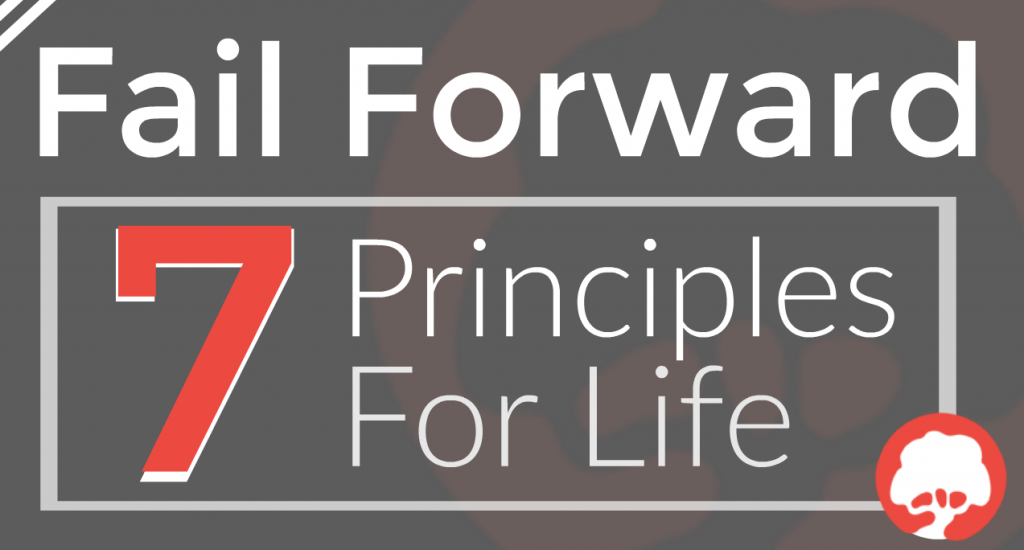Fail Forward – 7 Principles For Life
- December 9, 2015
- Posted by: Hyde Park
- Categories: Hyde Park News, Innovation

Being a Project Manager is not easy. In fact, it’s pretty stressful. Increased levels of stress have been linked to decreased cognitive ability and heightened emotional response – not overly useful in what is already a highly pressurised environment.
As a Project Manager you will have encountered failure. Either on the micro or, unfortunately, macro level. What is of vital importance is how we internalise and deal with the failure…do you let it eat away at your confidence and allow seeds of self doubt to begin growing? Or do you retrospectively analyse the series of events leading up to the failure in order to learn from them? The latter is infinitely more useful to your personal and professional development.
Today, we’ll focus on the words of New York Times best selling author and world renowned leadership coach – John C Maxwell.
Fail Forward – 7 Principles For Life
1. Reject Rejection
Achievers who persevere do not base their self-worth on their performance. On the contrary, they have a healthy self-image that’s not dictated by external events. When they fall short, rather than labelling themselves a failure, they learn from mistakes in their judgment or behaviour. Your self-worth is not tied to how others perceive you. It’s based on how you perceive yourself.
2. Don’t Point fingers
When people fail, they’re often tempted to blame others for their lack of success. By pointing fingers, they sink into a victim mentality and cede their fate to outsiders. When playing the blame game, people rob themselves of learning from their failures and alienate others by refusing to take responsibility for mistakes. By refusing to accept responsibly for your failures, you rob yourself of your agency to dictate your course in life and work. Do not do this.
3. See Failure as Temporary
People who personalise failure see a problem as a hole they’re permanently stuck in, whereas achievers see any predicament as temporary. One mindset wallows in failure, the other looks forward to success. By putting mistakes into perspective, achievers are able to see failure as a momentary event, not a symptom of a lifelong epidemic. Refuse to become despondent if life is not going according to plan. Keep moving in a positive trajectory at all times.
4. Set Realistic Expectations
Unrealistic goals doom people to failure. For instance, if a person hasn’t exercised for five years, then making it to a gym twice a week may be a better goal than running in next month’s marathon. Also, some people insensibly expect to be perfect. Everyone fails, so expect setbacks and emotionally prepare to deal with them. Making some headway into achieving your goal is still better than making no progress at all. Be kind to yourself by setting realistic goals.
5. Focus on Strengths
Don’t invest time shoring up non-character flaws at the exclusion of investing in your strengths. People operating from a position of strength enjoy a far lower rate of failure than those labouring in areas of weakness. You’re built to give your talents to the world; be diligent about finding expressions for them in your career.
6. Vary Approaches to Achievement
In the Psychology of Achievement, Brian Tracy writes about four millionaires who made their fortunes by age 35. On average, these achievers were involved in 17 businesses before they finding the one that took them to the top. They kept trying and changing until they found something that worked. Keep evolving and developing. Always be on the look out for ways and opportunities to broaden your horizons.
7. Bounce Back
Rehashing missteps and blunders for too long sabotages concentration and eats away at self-confidence. When dealing with failure, achievers have short memories. They quickly forget the negative emotions of setbacks and press forward resiliently. While taking pause to learn from failures, achievers realise that the past cannot be altered and should therefore quickly be learned from and then left behind.
Hyde Park Solutions are at the forefront of Oracle Primavera consulting and solutions services, striving to change the way people see SaaS providers.
For any Oracle Primavera related queries, please give us a call or contact us here.
